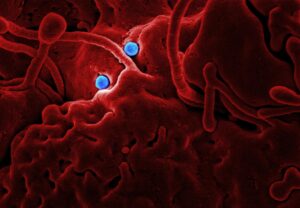--->health.bedscape.com (Main Page) --->Blogposts -Because Your Health is Important
--->Bedscape.com -Become a Warrior in Bed
Imagine your body as a vibrant ecosystem, home to trillions of tiny helpers called the gut microbiome. These bacteria, fungi, and viruses live in your digestive system, especially your intestines, and they’re key to feeling your best. Far beyond just helping with digestion, your gut microbiome affects your immune system, mood, and even your risk of chronic diseases. Want to improve gut health naturally? You’re in the right place. In this post, we’ll explore how these microscopic allies work, why they matter, and simple ways to nurture them for a healthier you.
What is the Gut Microbiome?
Your gut microbiome is like a busy community inside your intestines, made up of countless microorganisms unique to you. Think of it as your body’s secret weapon for breaking down food and soaking up nutrients. When you eat gut health foods like fiber-rich veggies or whole grains, these bacteria get to work, turning tough fibers into energy your body loves. They even make vitamins you can’t produce alone, keeping everything running smoothly.
This partnership isn’t one-sided. While you give these microbes a home and food, they strengthen your gut walls, fend off bad germs, and help your immune system stay sharp. They’re also chatting with your brain, influencing how you feel every day. Curious about probiotics for beginners? We’ll get to that soon—it’s one easy way to boost this amazing system.

The Gut-Brain Link: How Gut Health Affects Mood
Ever wonder why a bad stomach day messes with your head? It’s the gut-brain link at play—a two-way conversation between your gut microbiome and your mind. These bacteria produce feel-good chemicals like serotonin, which keeps you calm and happy. Studies show that a balanced gut can ease stress and lift your mood, making it a natural way to improve mental health.
When your gut’s off, though, it’s a different story. An imbalance might leave you feeling anxious or foggy. Researchers are even finding ties to conditions like depression. Want a simple fix? Adding gut health foods like yogurt or fermented veggies can tip the scales back in your favor, supporting both your belly and your brain.
Self-Transformation Notebook Pack $19
Unlock your potential with this essential $19 bundle of five life-enhancing guides! Ready to thrive? Start here.
- END YOUR SNORING: Snoring isn’t just noisy—it can signal serious health risks like sleep apnea. Discover how to stop it naturally, without surgery, using quick, daily exercises that clear your airways and restore peaceful sleep.
- MASTER YOUR SLEEP: Poor sleep can sap your energy, fog your mind, and weaken your health over time. Master your sleep naturally—no pills needed—with proven habits and routines that unlock deep, refreshing rest tailored to you.
- THE HIDDEN WORDS WITHIN: Your body harbors unseen universes—trillions of microbes shaping your health, mood, and future. The Hidden Worlds Within reveals how these tiny allies in your gut and mouth can falter, fueling chronic illness and mental strain. With practical steps and fermented food recipes, harness their power—no lab required—to thrive from the inside out.
- SYMMETRY IN MOTION: ENHANCING FACIAL BALANCE THROUGH EXERCISES: Discover the secrets to a more balanced face without surgery—through simple exercises, the viral Mewing technique, and everyday habits that reshape your features over time. This book unveils how your jaw, cheeks, and eyes can find harmony, blending science, practical steps, and real stories to guide you toward subtle, confidence-boosting symmetry.
- ASTRAL AVAKENING: YOUR COMPLETE GIUDE TO OUT OF BODY EXPERIENCES, LUCID DREAMING AND CONSCIOUSNESS EXPLORATION: Unlock the secrets of your consciousness and soar into the astral realm with this transformative guide. From mastering out-of-body experiences to weaving their calm and creativity into your daily life, this book offers a 30-day journey to awaken your spirit and explore the unseen. Ready to lift off?
Gut Health Foods and Tips to Thrive
Ready to improve gut health naturally? It starts with what you eat. Here’s how to feed your microbiome right:
- Fiber-rich picks: Load up on fruits, veggies, and whole grains—they’re like fuel for your good bacteria.
- Fermented goodies: Try yogurt, kefir, or sauerkraut for a probiotic boost. New to this? Start with probiotics for beginners—think plain yogurt with live cultures.
- Colorful treats: Berries, dark chocolate, and green tea bring polyphenols, which your gut microbes adore.
Skip the junk—processed snacks and sugary drinks can throw things off. Beyond food, move your body daily (a quick walk works!), manage stress with a few deep breaths, and get solid sleep. These habits keep your gut happy and humming.
Why Your Gut Shapes Your Whole Body
Your gut microbiome doesn’t just sit there—it’s a powerhouse for your health. It trains your immune system to fight off bugs, keeping colds and allergies at bay. It also plays a big role in managing weight and blood sugar, helping you avoid issues like diabetes. Plus, it keeps inflammation in check, which can otherwise spark heart trouble or joint pain.
How do you keep it strong? Stick to those gut health foods and simple lifestyle tweaks. It’s not about perfection—just small steps that add up over time.
The Future: Gut Health Made Just for You
Science is unlocking cool ways to tailor gut care to you. Imagine doctors checking your microbiome to pick the perfect probiotics or diet plan. It’s called personalized medicine, and it’s already helping people fine-tune their health. Curious? Start with the basics—eat well, sleep well, and let your gut lead the way.
Get Started Today
Your gut microbiome is your ticket to feeling great—inside and out. Try adding a spoonful of kefir to your morning or swapping chips for a handful of nuts. Want more? Check out our Gut Guide to see how rest ties in (yep, it’s all connected!). What’s your go-to gut health tip? Share it below—we’d love to hear!




